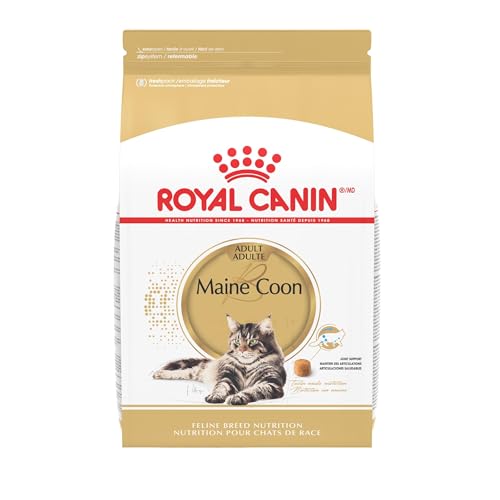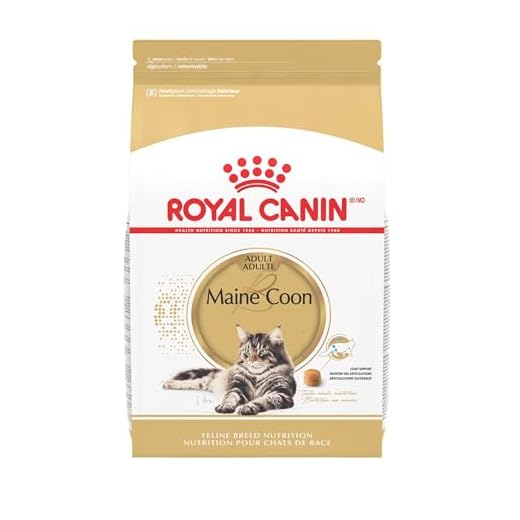

If you’re thinking about adding a fluffy companion to your home, prepare for an investment ranging from $800 to $2,000, depending on various factors. The price can fluctuate based on the breeder’s reputation, lineage, and geographical location. Selecting a reputable breeder is key to ensuring a healthy and happy addition to your family.
Health screenings and vaccinations are essential aspects that contribute to the overall price. Responsible breeders conduct thorough health checks to avoid genetic issues, which may increase initial costs but ultimately save you from unexpected veterinary bills down the line. You may also encounter additional expenses such as registration fees and initial supplies, which can add another $200 to $500 to your budget.
Consider also the ongoing costs of food, litter, and routine vet visits, which can accumulate to around $1,000 annually. Investing in quality supplies and proper nutrition will ensure your feline thrives in its new environment. Be prepared for an ongoing financial commitment that extends beyond the initial purchase.
Price Range for a Maine Coon Feline
Expect to pay between $800 and $2,000 for a Maine Coon, depending on factors like lineage, breeder reputation, and location. Show-quality kittens with championship bloodlines can be on the higher end, while pet-quality options may be more affordable.
Add around $200 to $500 for initial veterinary care, including vaccinations and spaying or neutering. This upfront investment is key for your new companion’s health and wellbeing.
Consider additional expenses such as high-quality food, grooming tools, and regular vet visits. Monthly costs for food and supplies can range from $50 to $100, depending on your choices.
Adoption is another viable route, with fees typically ranging from $100 to $300 at rescue organizations. This often includes spaying or neutering, vaccinations, and sometimes a microchip.
Research breeders thoroughly to ensure ethical practices and healthy kittens. A reputable breeder provides health guarantees and welcomes inquiries about their breeding practices.
Initial Purchase Price of Maine Coon Cats
The starting price for a Maine Coon typically ranges from $800 to $2,000. Factors influencing this range include pedigree, breeder reputation, and geographical location.
For show-quality individuals, expect prices at the higher end. Kittens from championship bloodlines often exceed $2,000 due to their lineage.
Health guarantees and initial vaccinations may be included in the price, so check what each breeder offers. Always prioritize reputable breeders who perform health screenings on their felines.
Adoption options exist through shelters and rescues, where fees usually range from $150 to $300. These costs often cover spaying/neutering and vaccinations.
Consider the long-term financial commitment of care, food, and veterinary needs when evaluating the initial expense.
Factors Influencing Maine Coon Pricing
When looking for a Maine Coon, several elements determine the price. Firstly, breeder reputation plays a significant role. Established breeders with a history of healthy, well-socialized kittens often command higher fees. These breeders prioritize genetics and health screenings, which can lead to a more considerable initial investment.
Another factor is location. Prices vary by region, with urban areas typically seeing higher prices than rural ones. This difference is due to demand and availability. If you’re in a city with many pet enthusiasts, expect to pay more.
Color and pattern also impact pricing. Rare color variations or specific patterns can elevate the cost. For instance, a classic tabby might be more affordable than a solid white or a tortoiseshell.
The age of the feline affects the price as well. Kittens generally cost more than adults. If you’re considering adopting an older Maine Coon, you might find a lower price, but be aware of potential health issues that could arise.
Lastly, consider any additional services provided by the breeder. Some may offer initial vaccinations, microchipping, or a health guarantee, which can justify a higher price. Always assess what is included to ensure you’re making a well-informed decision.
Cost Differences Between Breeders and Shelters
Choosing between a breeder and a shelter can significantly impact the overall expenses involved in acquiring a feline companion. Breeders typically charge higher fees, often ranging from $1,000 to $3,000, depending on the lineage and pedigree of the kittens. These prices often include initial vaccinations, health guarantees, and sometimes even breeding rights.
In contrast, adopting from a shelter is generally more budget-friendly. Adoption fees usually range from $50 to $200. This fee often covers spaying or neutering, vaccinations, and initial health checks, making it a financially wise choice for many.
Understanding the Value
While the initial price tag may seem lower at shelters, it’s important to consider the long-term commitment involved. Cats from breeders may come with extensive health histories and specific breed traits. On the other hand, shelter cats might require additional care or health assessments after adoption, which can add to the total expense.
Personal Considerations
Ultimately, my choice would reflect personal values and preferences. Adopting a shelter pet not only saves money but also provides a home to an animal in need. However, if someone is looking for specific traits or a certain lineage, investing in a reputable breeder may be justified. Each option carries its own merits, and the right choice varies based on individual circumstances.
Additional Expenses After Purchase
Owning a feline companion involves more than just the initial payment. Regular expenses accumulate quickly, so planning is key. Here’s a breakdown of what to expect after bringing home your new friend.
Routine Care and Supplies
Essentials like food, litter, and toys will fill your shopping list. Quality nutrition is non-negotiable for health. Here’s an estimate of monthly costs:
| Item | Estimated Monthly Cost |
|---|---|
| High-quality cat food | $30 – $60 |
| Cat litter | $15 – $30 |
| Toys and treats | $10 – $20 |
Healthcare Expenses
Regular vet check-ups and vaccinations are crucial. Expect to budget for:
| Healthcare Item | Average Annual Cost |
|---|---|
| Annual vet visit | $100 – $200 |
| Vaccinations | $50 – $100 |
| Preventive treatments (flea, tick) | $60 – $120 |
Additionally, consider pet insurance to help mitigate unexpected costs from accidents or illnesses. This could range from $20 to $50 monthly, depending on coverage.
Setting aside funds for grooming, especially if you choose a more luxurious grooming routine, will also be wise. For soundproofing any potential disturbances, check out the best acoustic foam for soundproofing barking dogs. This can enhance your home environment for both you and your furry friend.
Long-term Financial Commitment of Owning a Maine Coon
Investing in one of these magnificent felines involves more than just the initial fee. Here are key ongoing expenses to consider:
Regular Veterinary Care
- Annual check-ups and vaccinations: $100 – $300 per year.
- Preventive treatments for fleas and ticks: $50 – $150 annually.
- Potential emergencies or health issues can easily add thousands to your budget.
Nutrition and Supplies
- Quality cat food: Expect to spend around $30 – $60 monthly.
- Litter and litter boxes: Approximately $20 – $40 each month.
- Other supplies: Toys, grooming tools, and scratching posts can amount to $100 – $200 annually.
Don’t overlook the need for appropriate furniture. Investing in best cat furniture for large cats can enhance your pet’s comfort and help keep your home intact.
Insurance and Miscellaneous Costs
- Pet insurance: $20 – $50 monthly could save you from hefty vet bills.
- Grooming expenses, especially for long-haired breeds, may range from $50 – $100 every few months.
Long-term ownership means being prepared for ongoing expenses that can accumulate over the years. Budgeting wisely ensures a happy life for you and your furry companion.









